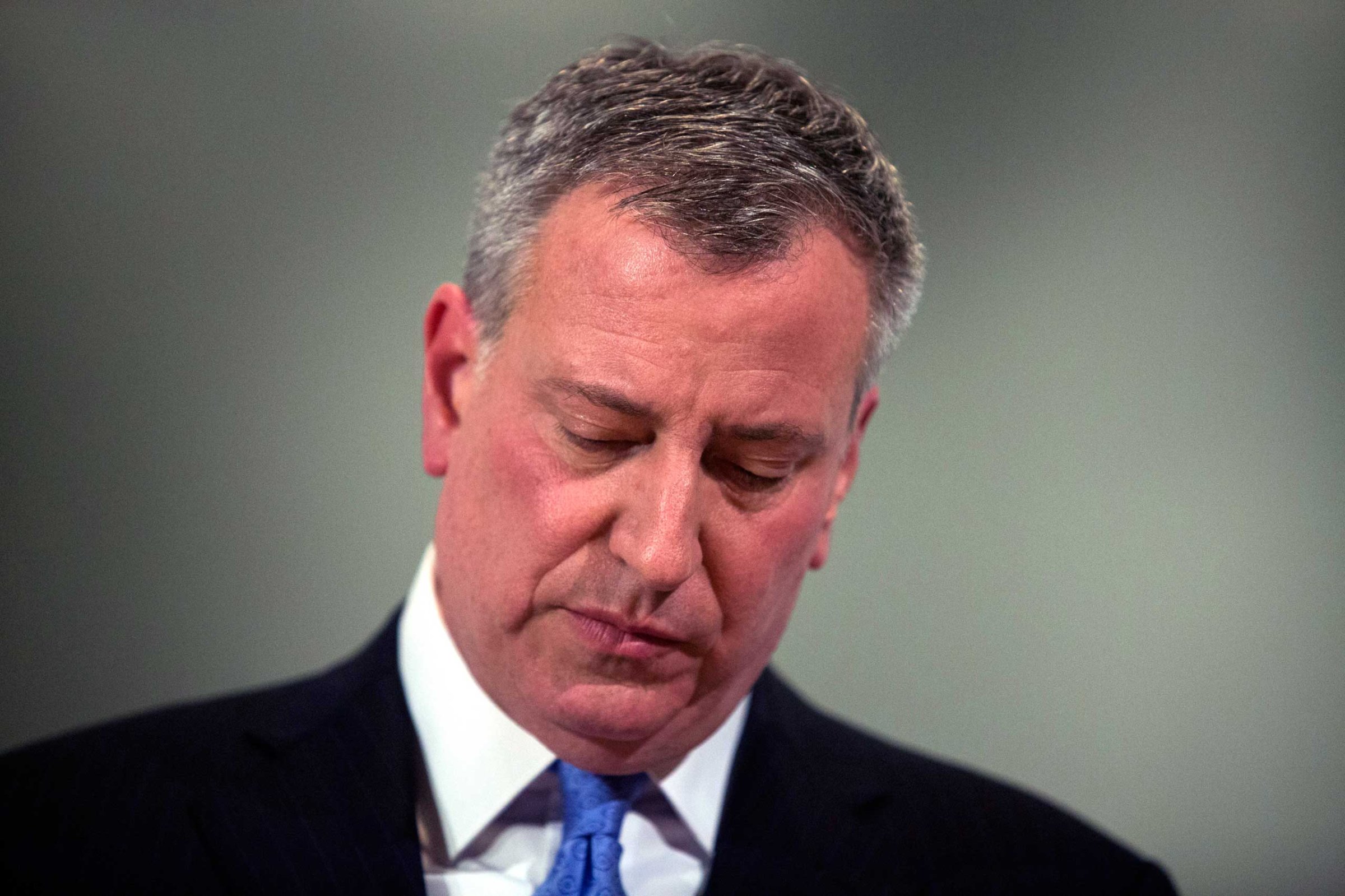
The killing of two New York City police officers on Dec. 20 has turned the department’s simmering feud with city hall into a political firestorm that has implications for the national debate over policing.
After officers Wenjian Liu and Rafael Ramos were shot and killed Saturday afternoon in an unprovoked attack, cops and union leaders publicly rebuked Mayor Bill de Blasio, arguing his earlier remarks had stoked anti-police sentiment. That night, officers turned their backs on the mayor as he walked through the Brooklyn hospital where the officers were taken.
De Blasio on Monday called for a suspension of protests and political debate over policing so that the families of the fallen officers could grieve in peace. “We all see the world through the prism of our families,” the mayor said in somber remarks at a charity luncheon. “Our first obligation is to respect these families in mourning.”
The call for unity came two days after Patrick Lynch, the president of the city’s biggest police union, openly blamed the mayor for the tragedy. “There’s blood on many hands tonight,” he said. “That blood on the hands starts at the steps of City Hall in the office of the mayor.”
READ MORE New York City Mayor Calls for Pause to Protests
New York’s current mayor has never been on friendly terms with New York’s finest. The strained relationship dates back to de Blasio’s campaign, when he pledged to reform the city’s stop-and-frisk practices, which the police credited for a decrease in crime but detractors decry as institutionalized racial profiling. The promise, along with de Blasio’s own mixed-race family and his outreach to black communities, helped him win 42% of the African-American vote in a crowded Democratic primary that featured an experienced black candidate, former city comptroller Bill Thompson.
De Blasio tried to couch his opposition to stop-and-frisk as a criticism of a practice championed by outgoing mayor Michael Bloomberg, not of the officers carrying it out. And de Blasio has not departed from the policy of “broken windows” policing, which targets low-level street offenses as a way to prevent more serious crimes. But New York’ police force, who were celebrated for their heroic response to the Sept. 11 terrorist attacks and lionized by non-liberal mayors for two decades, have bristled at his perceived slights. “Quite frankly, the mayor ran an anti-police campaign,” former police commissioner Ray Kelly told ABC on Sunday.
Witness the Aftermath of Police Shooting in Brooklyn
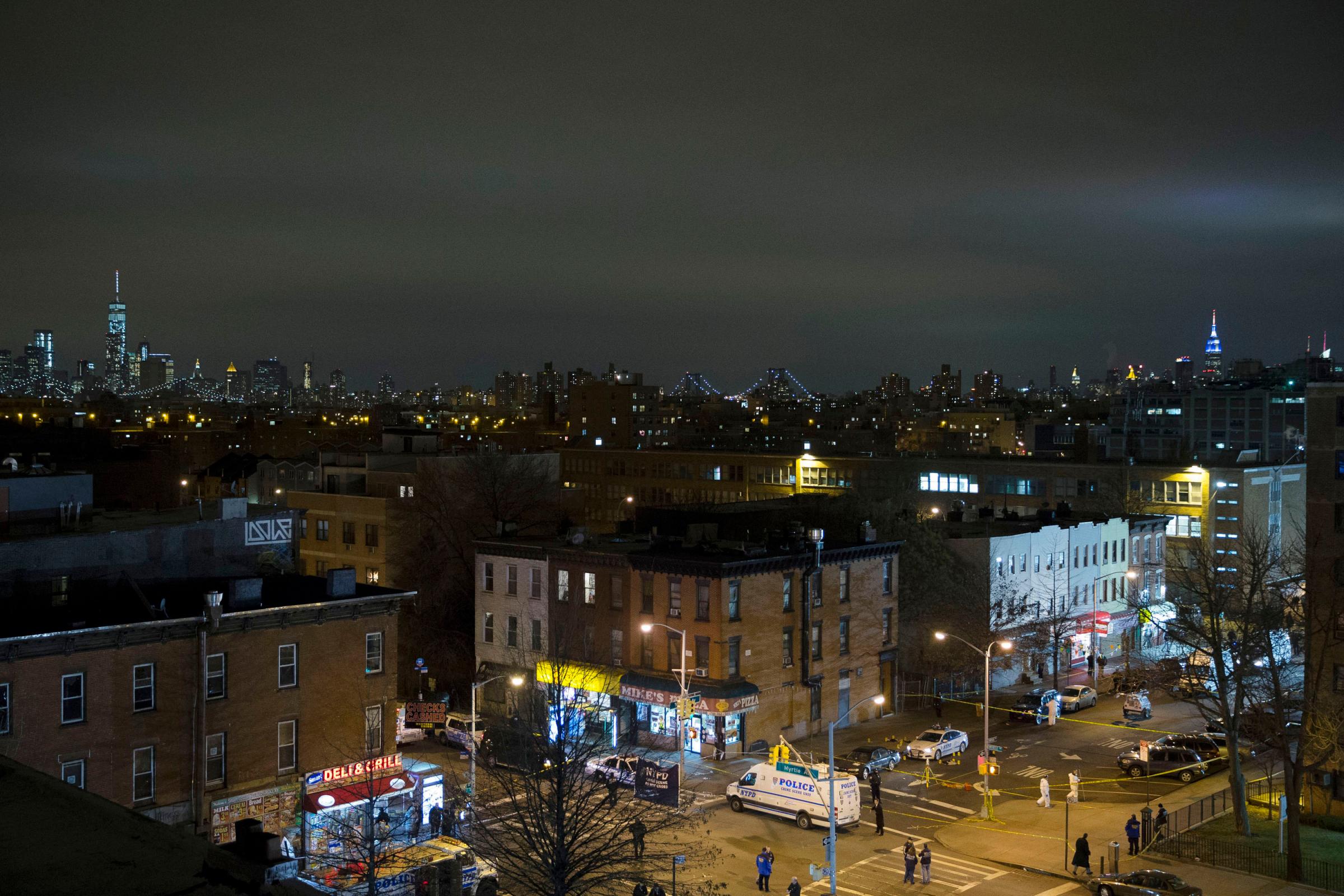
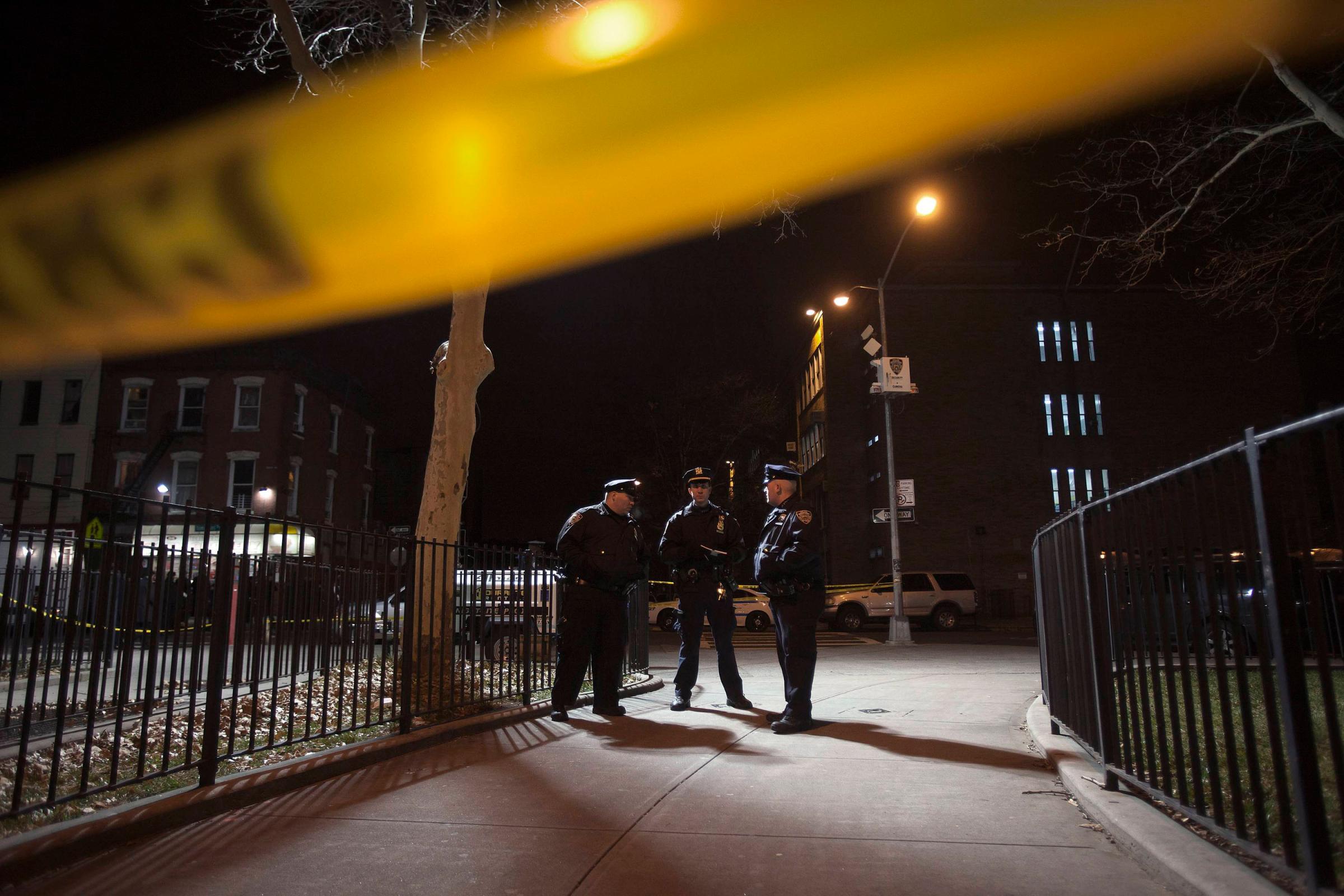
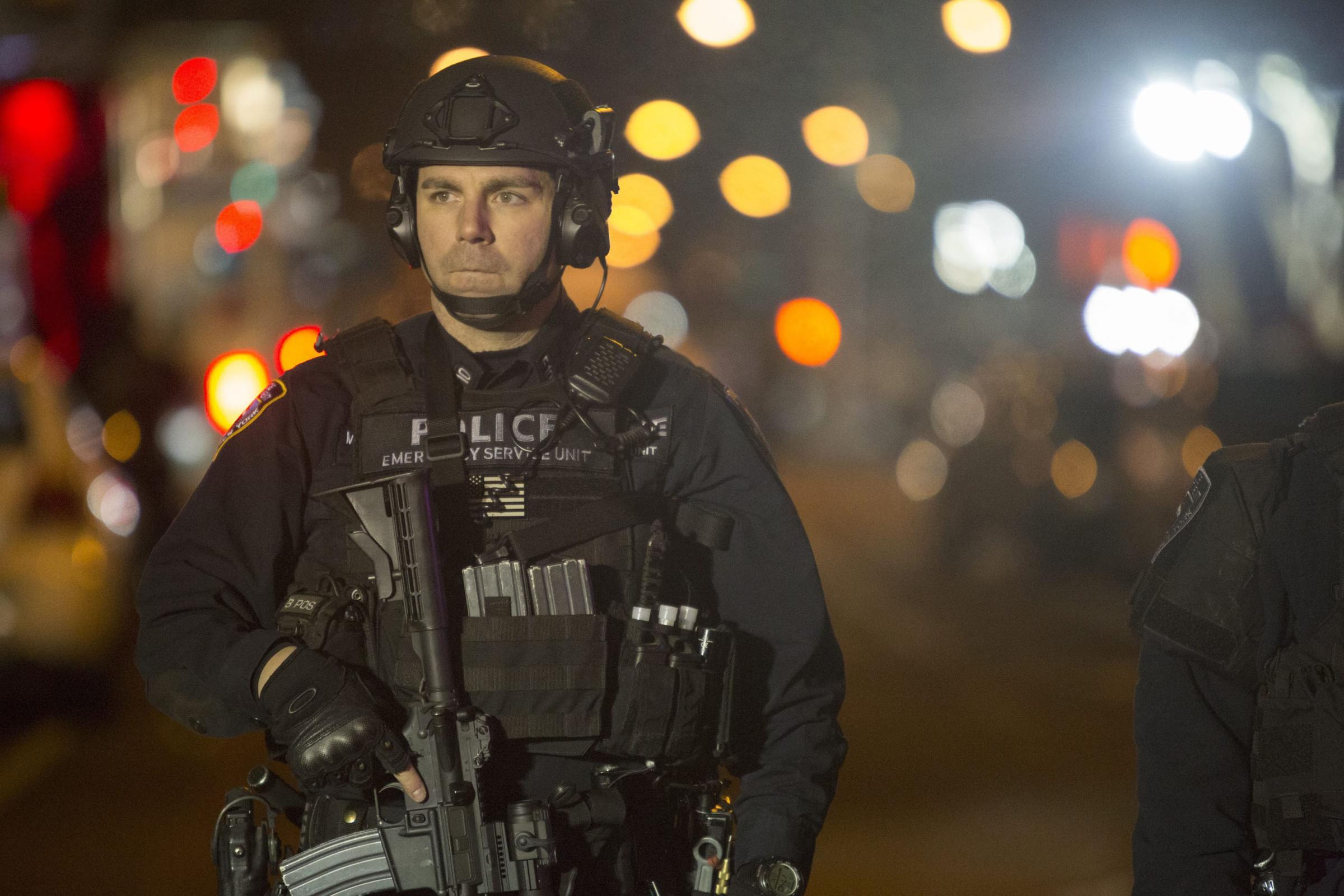
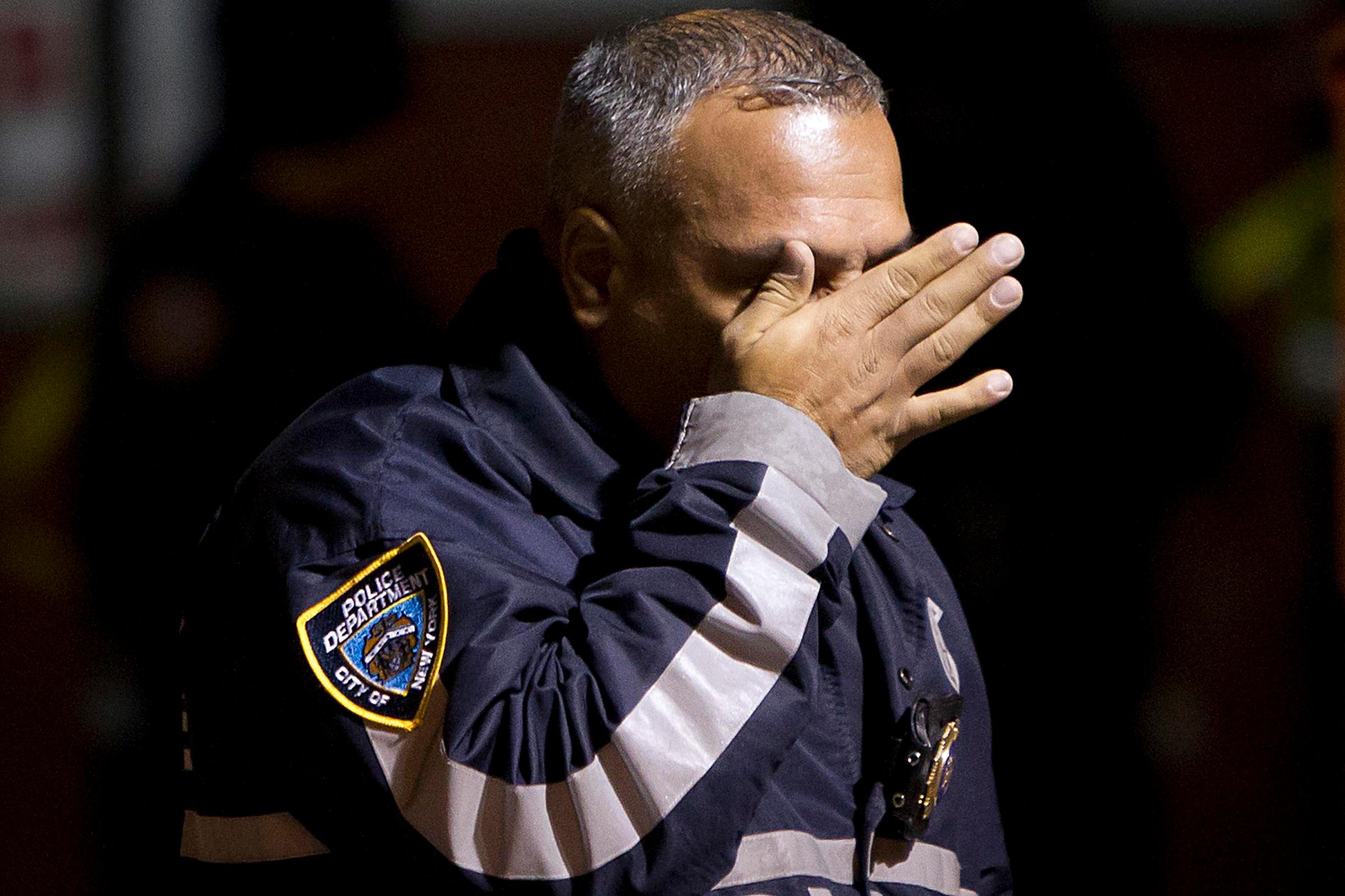
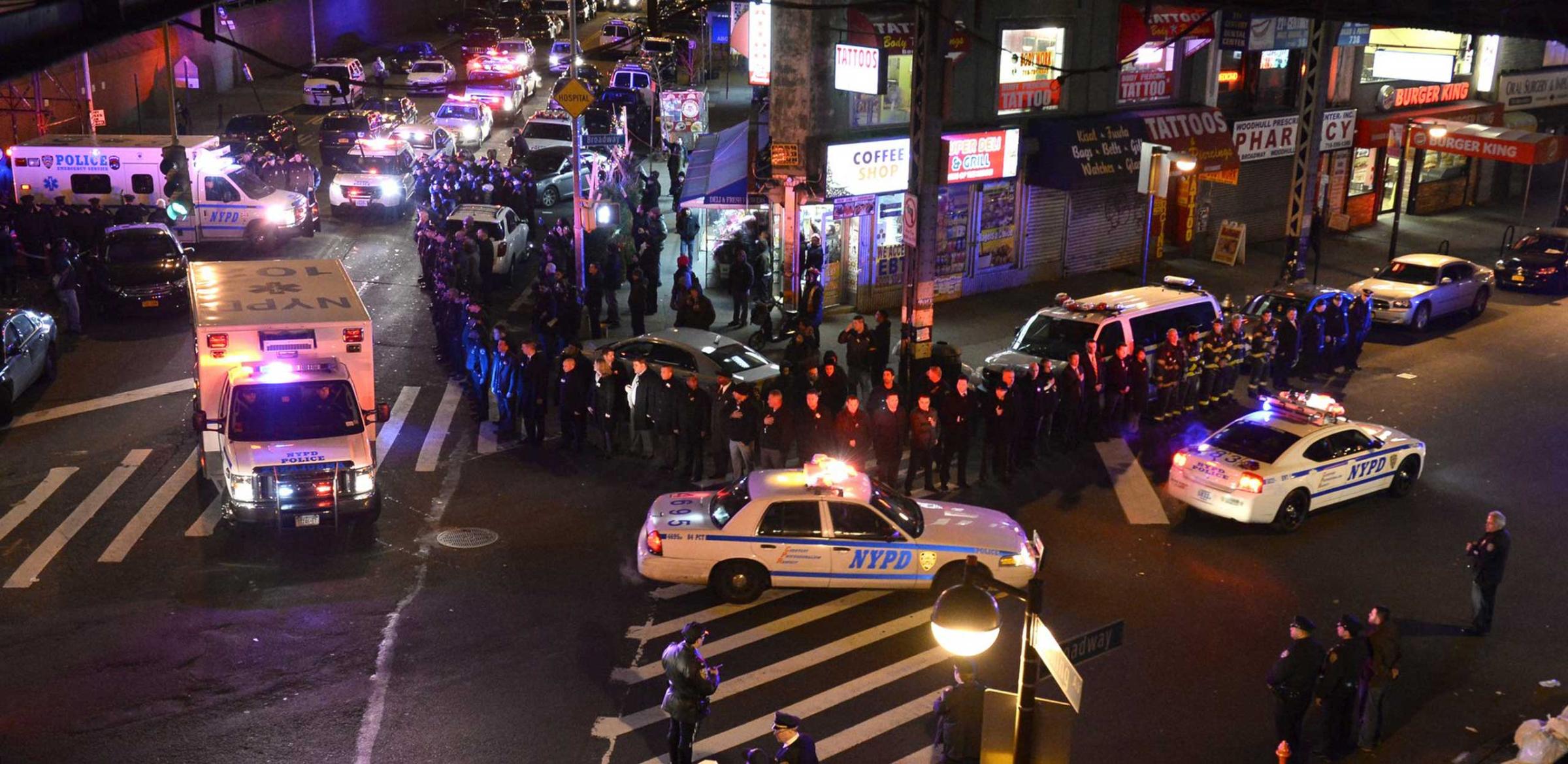
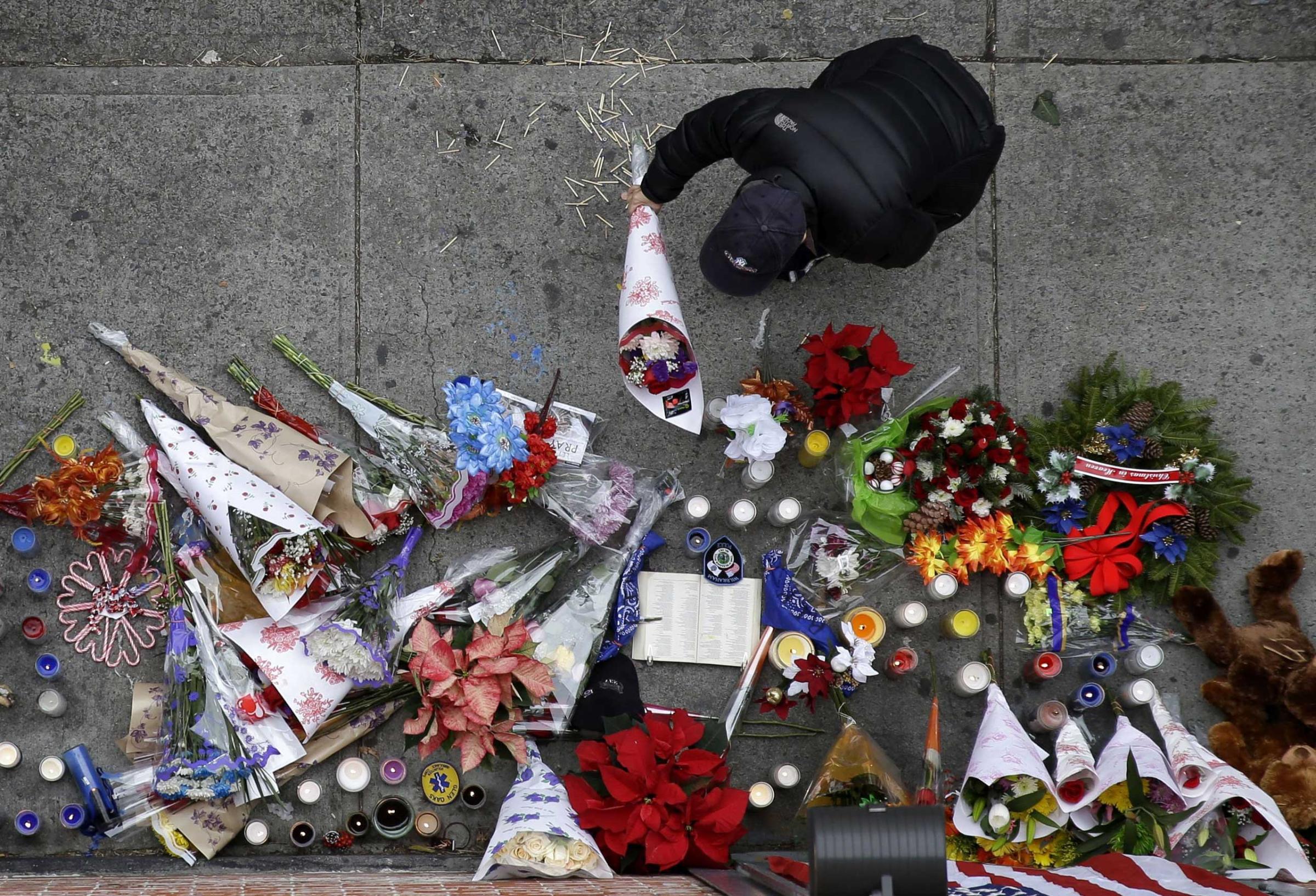
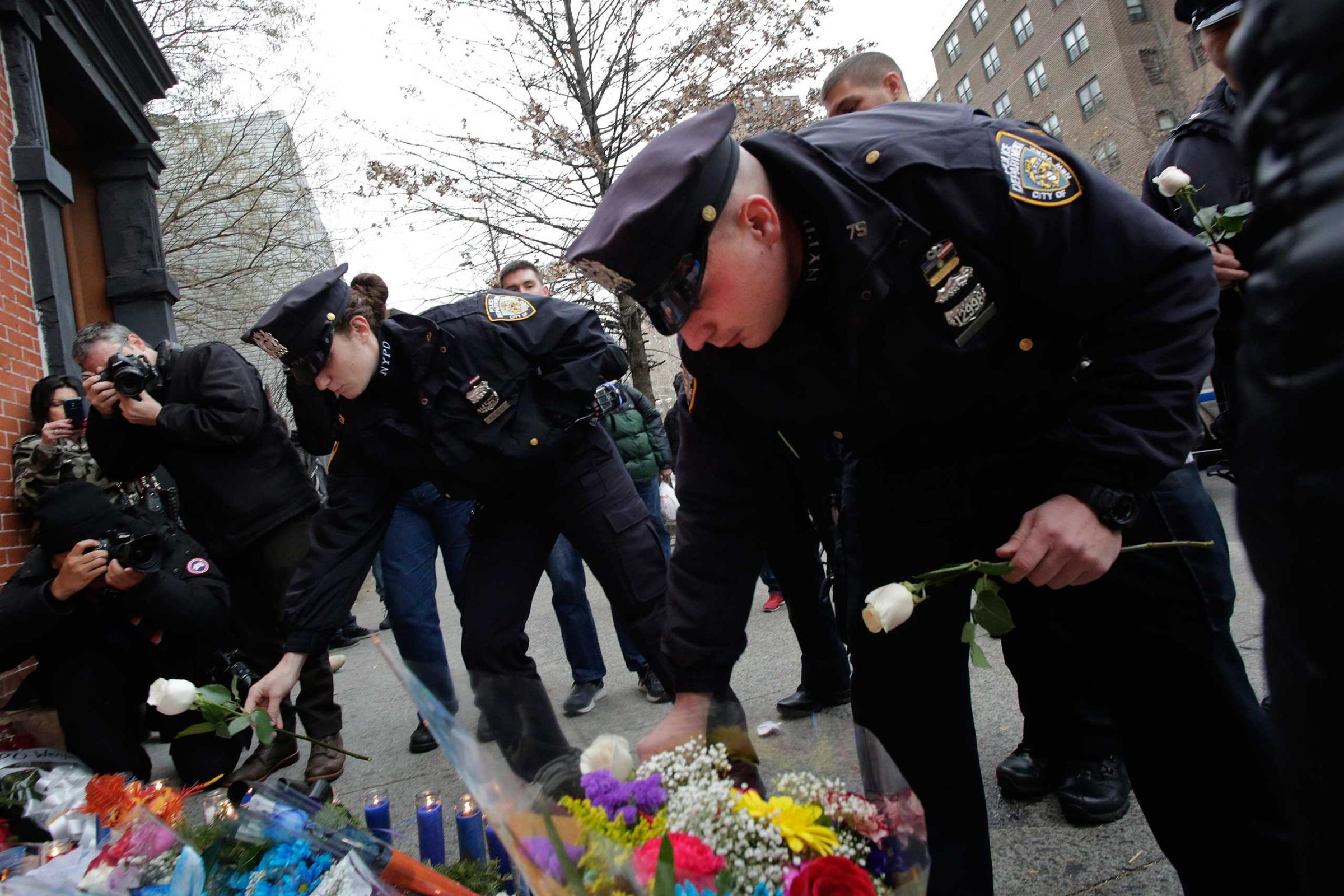
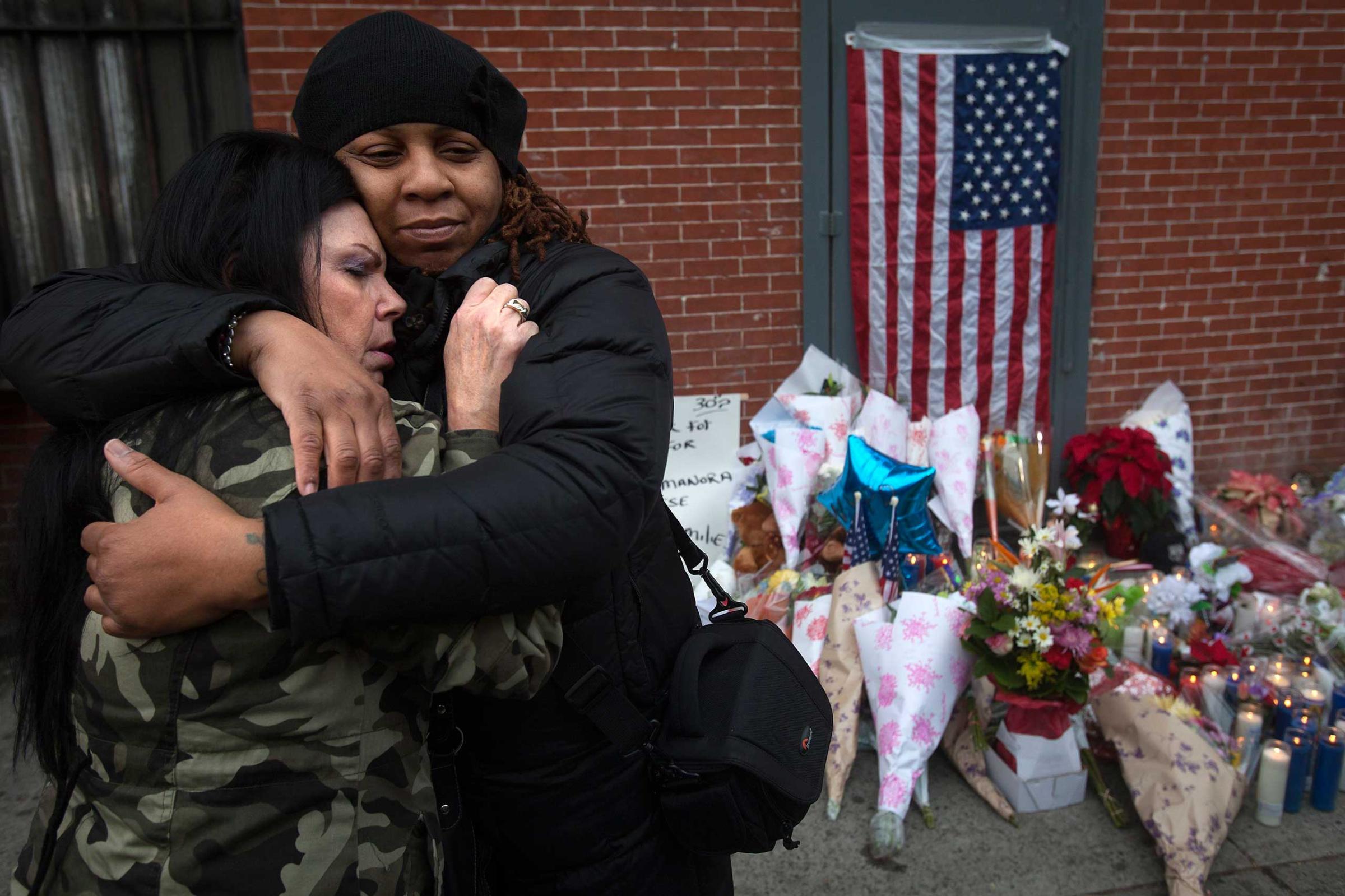
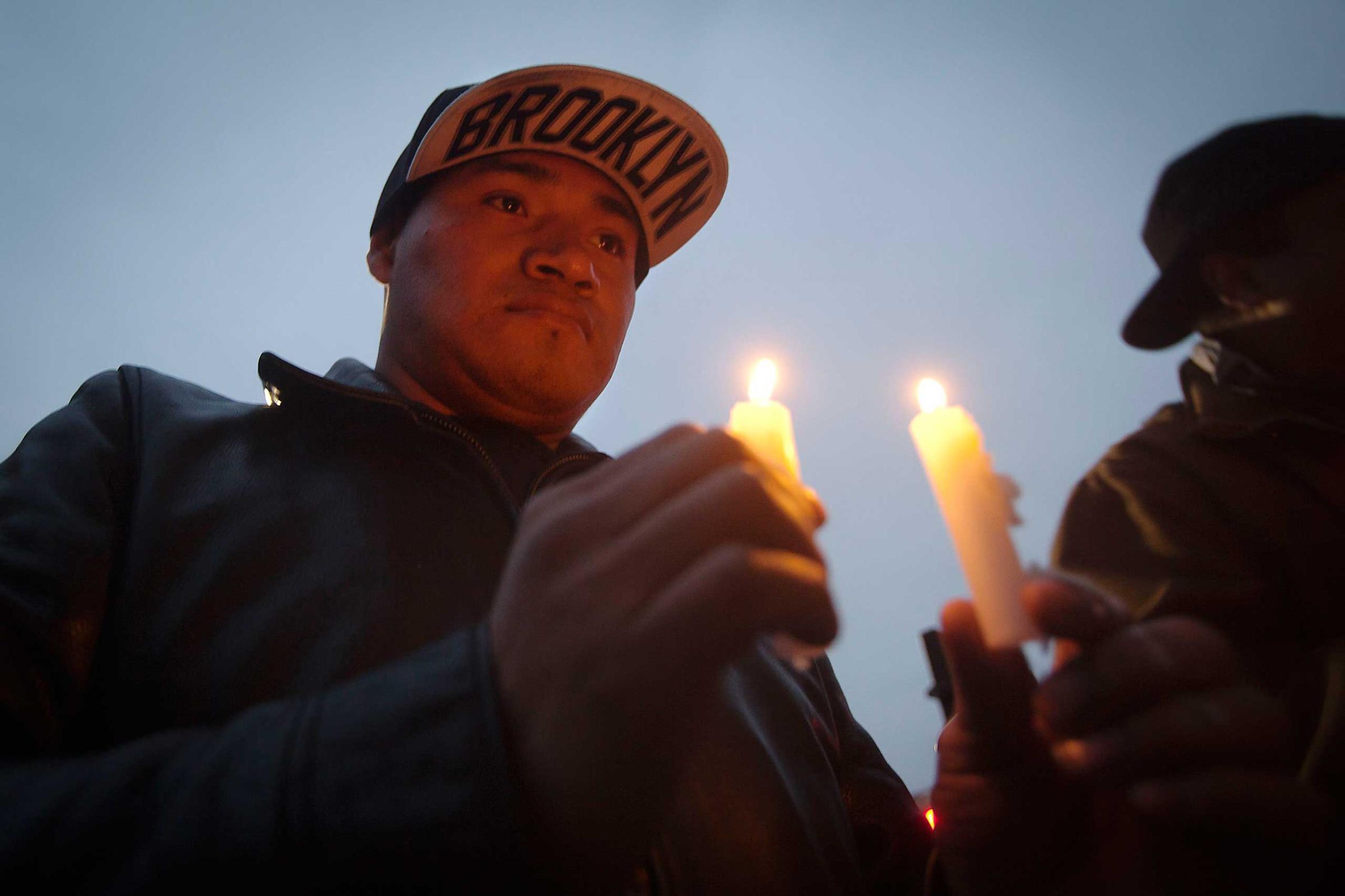
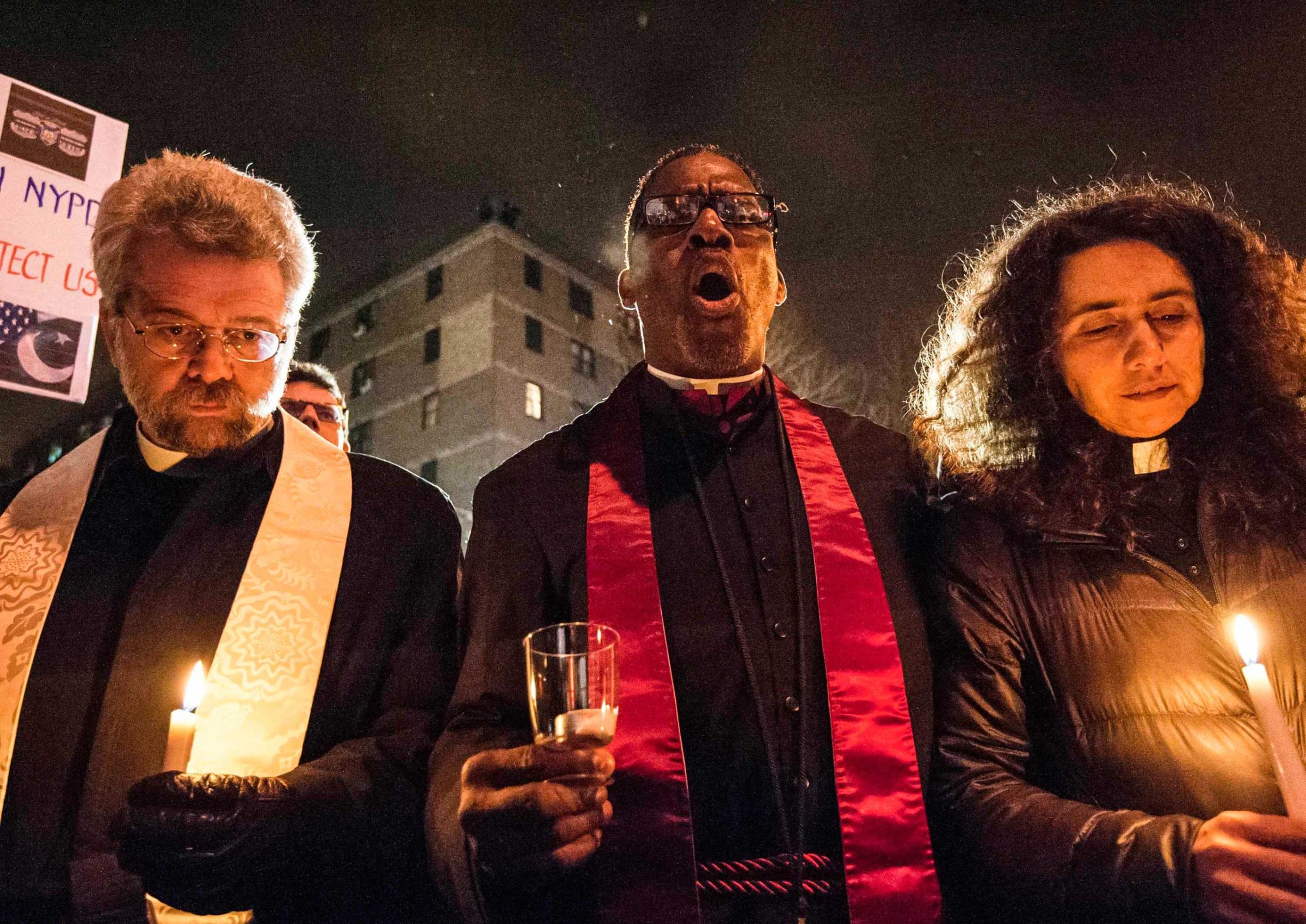
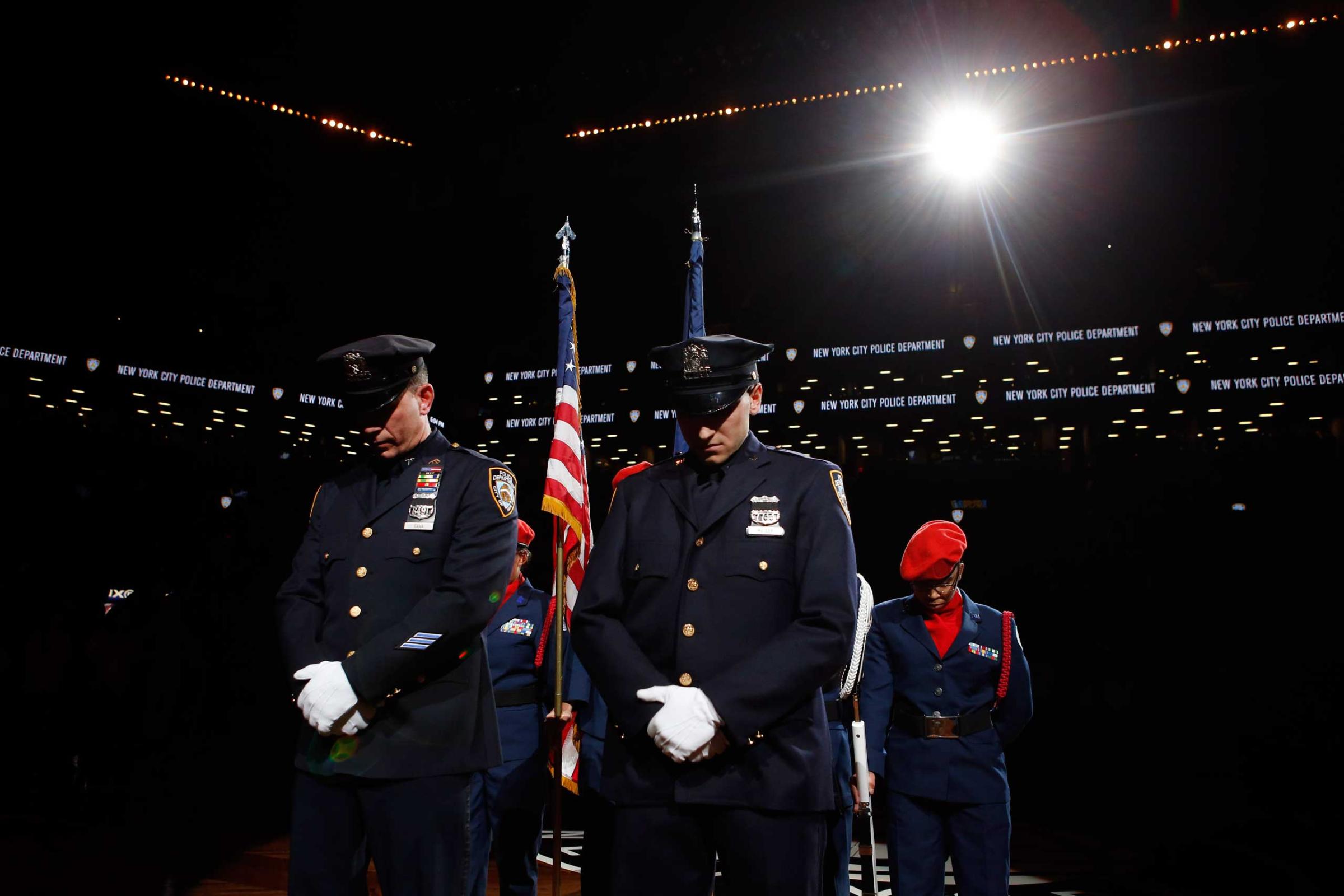
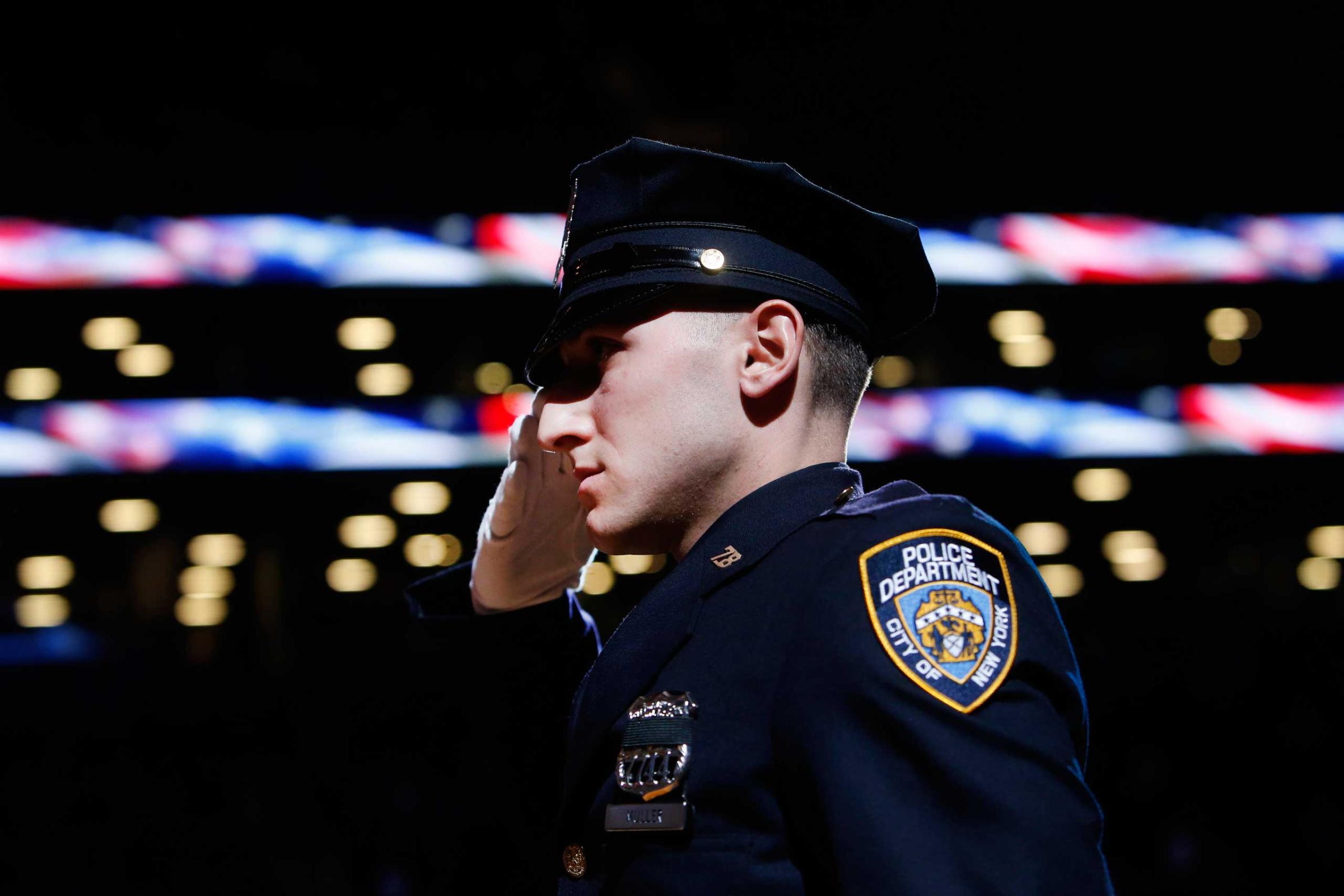
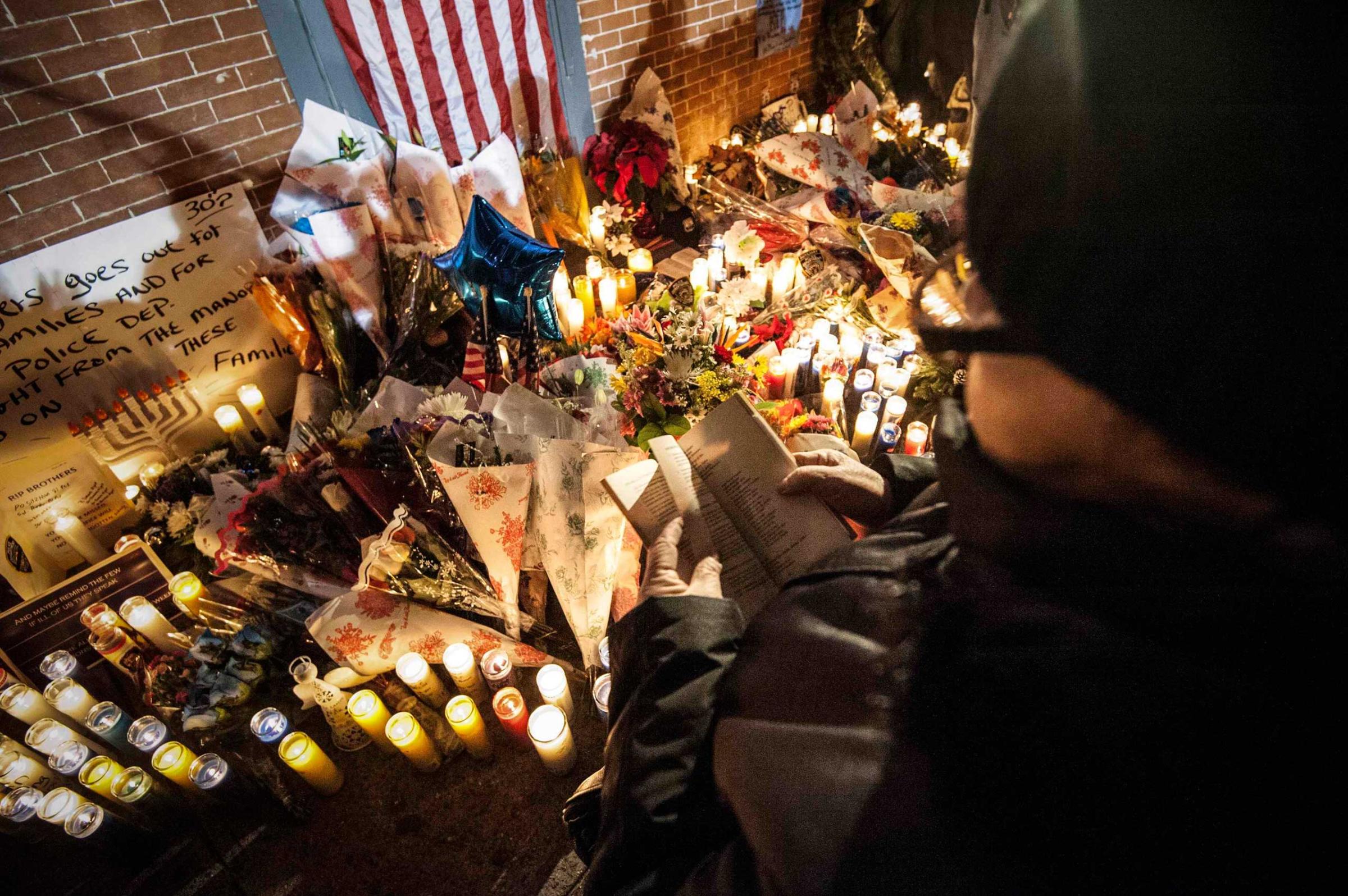
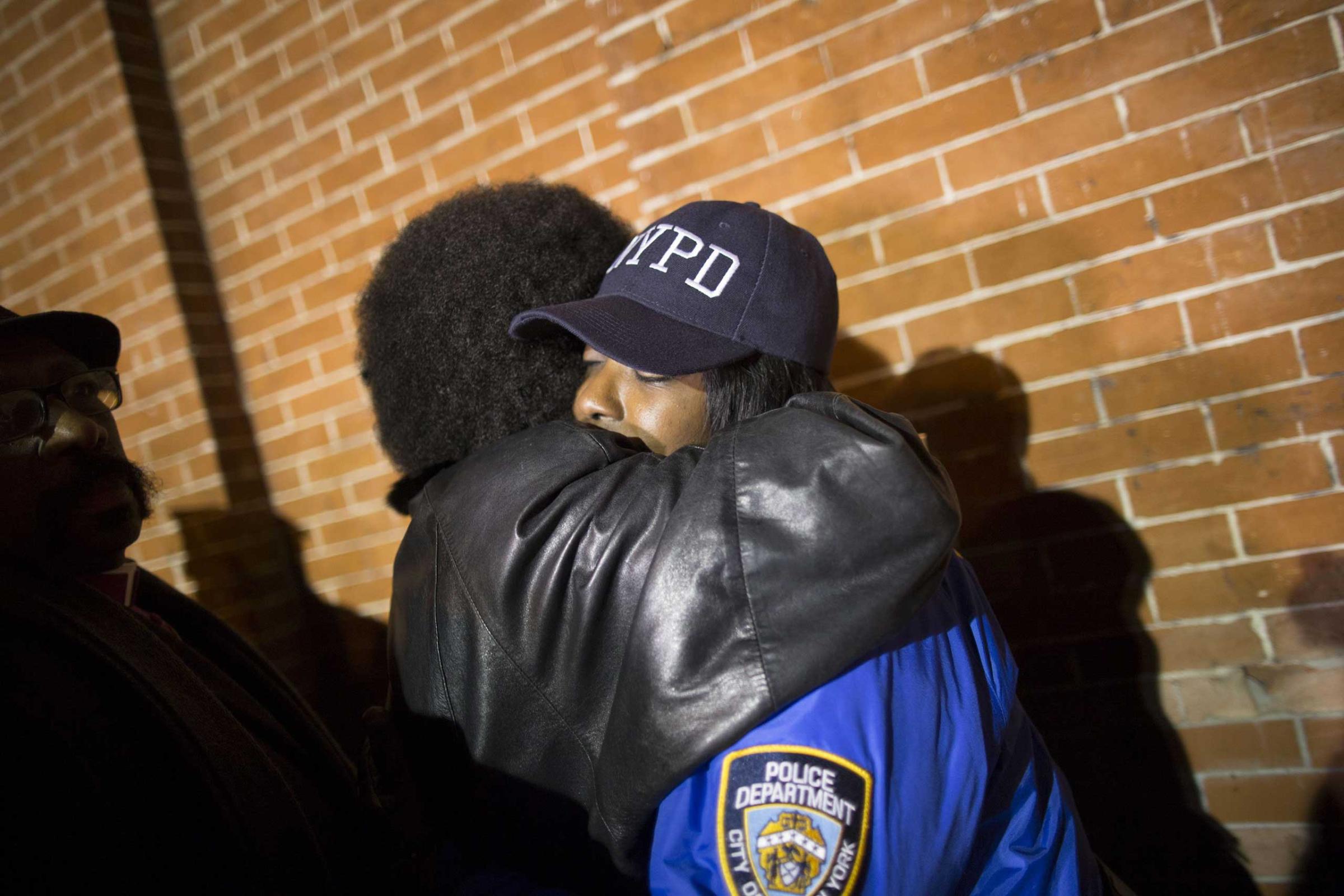
The tension exploded this month after a Staten Island grand jury declined to indict Daniel Pantaleo, the New York cop whose choke hold led to the death of Eric Garner. The incident became a new flashpoint for the nationwide protest movement against police violence ignited by the killing of Michael Brown in Ferguson, Mo. In a plea for calm, de Blasio spoke candidly about the fraught relationship between young black men and police, and recalled telling his own son, a mixed-race teenager with a towering Afro, about the dangers embedded in an encounter with a cop.
“I have had to talk to Dante for years about the dangers that he may face,” de Blasio said. “A good young man, law-abiding young man, who would never think to do anything wrong. And yet, because of a history that still hangs over us, the dangers he may face, we’ve had to literally train him—as families have all over this city for decades—in how to take special care in any encounter he has with the police officers who are there to protect him.”
READ MORE New York Mourns Slain Officers as Police Tighten Security
To many New Yorkers, the statement betrayed the mayor’s sympathy with the protesters who flooded the streets rather than the officers charged with keeping the peace. So did de Blasio’s announcement that in the wake of the Garner case, some 22,000 officers would be required to complete a three-day “retraining” course. “The way we go about policing has to change,” he declared.
The furor over these remarks are best understood in the context of a political environment that treats criticism of cops by public officials as taboo. The Republican war on public-sector unions ends at the precinct doors. When it doesn’t, the public sides with the police—as in Ohio, where a 2011 bill to rein in collective-bargaining rights was overturned in a voter referendum in large part because it lumped in cops and firefighters with teachers. Prominent Republican politicians blasted de Blasio in the wake of this weekend’s killing, the first of a New York City officer in the line of duty since 2011.
Police are accustomed to unconditional support for performing a difficult and dangerous job, which may be the best explanation for the union spokesmen who reacted with indignation whenever a public figure expressed sympathy for what has come to be known as the Black Lives Matter movement. A St. Louis police-union spokesperson demanded an apology from the NFL when the Rams’ wide receiving corps took the field in late November with their hands raised aloft in a gesture of solidarity. A Cleveland police-union president called Browns’ wide receiver Andrew Hawkins “pathetic” for wearing a warm-up shirt that called for justice for Tamir Rice, the 12-year-old gunned down in that city mere seconds after a cop encountered him holding a toy gun.
READ MORE North Korea’s Internet Comes Back on After About 9 Hours
None of that matched the invective that New York police officials heaped on de Blasio after protests cascaded across the city earlier this month. Within a week of the Garner decision, the New York City Patrolmen’s Benevolent Association was circulating a petition that asked de Blasio and New York city council speaker Melissa Mark-Viverito to stay away away from their funerals if they were killed in the line of duty. It is a short trip from this morbid request to scapegoating the mayor in a tragedy for which no one is responsible but the criminal who pulled the trigger.
More Must-Reads from TIME
- Cybersecurity Experts Are Sounding the Alarm on DOGE
- Meet the 2025 Women of the Year
- The Harsh Truth About Disability Inclusion
- Why Do More Young Adults Have Cancer?
- Colman Domingo Leads With Radical Love
- How to Get Better at Doing Things Alone
- Michelle Zauner Stares Down the Darkness
Write to Alex Altman at alex_altman@timemagazine.com